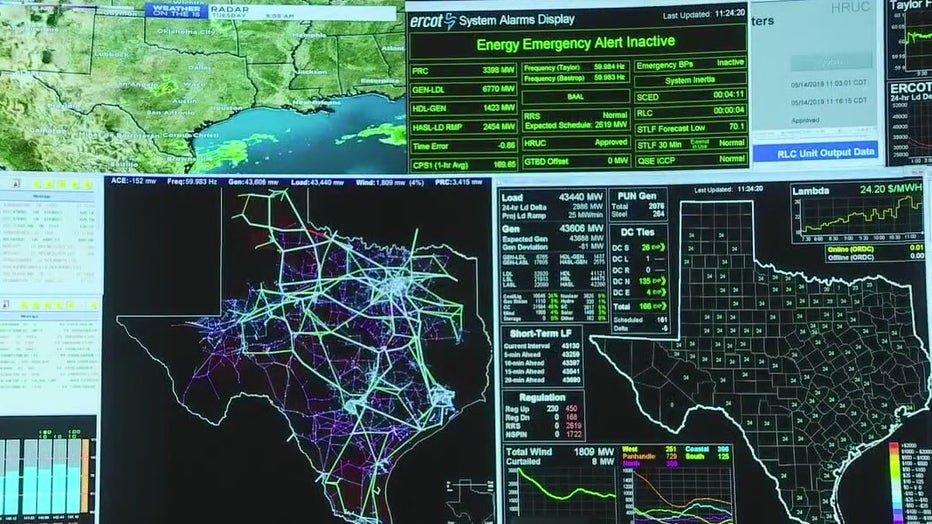Texas Legislature passes 1st bill in response to February's winter storm, but experts hoping for more

Texas Legislature passes 1st bill in response to February's winter storm, but experts hoping for more
The first major bill in response to February’s widespread power outages from the winter storm is headed to the governor's desk.
The first major bill in response to February’s widespread power outages from the winter storm is headed to the governor's desk.
It would keep companies from selling wholesale electricity to residents and small businesses.
More bills are expected to be passed in the coming days, but some major changes may be missed.
Governor Greg Abbott and Lt. Governor Dan Patrick assured Texans that real change was coming to make sure what happened in February doesn’t happen again.
However, some experts predicted the real change Texans may be hoping for may not come.
"It’s a rather pain staking and incremental process," said Bruce Bullock, director of the Maguire Energy Institute at SMU Cox School of Business.
Bullock said he was expecting the legislature to take things down to the wire, when it comes to addressing the energy crisis.
He saw it in 2011, when the state failed to properly address problems with the power grid after a major winter storm.
It may be happening again, ten years later.
"I have never seen something go through cleanly or without obstacles," he added.
But this week, the first winter storm bill did make its way to the governor’s desk, House Bill 16.

RELATED: Texas Legislature approves bill to ban residential wholesale electricity plans
It bans electric plans with wholesale pricing for residents and small businesses.
It’s similar to what the company Griddy was doing before February’s storm that left millions without power and more than 100 dead.
When the grid collapsed, Griddy charged customers thousands of dollars.
Two more bills just need a House vote to pass.
Friday, progress was made on both.
One increases the Public Utility Commission from three commissioners to five, requiring each of them to live in Texas.
Another makes changes to the agency that operates the electric grid, ERCOT, including requiring all board members to live in Texas.
Ahead of the winter storm many, including the board’s chair, lived out of state.
Bullock believes both will pass next week.
"But it doesn’t address the fundamental issues of the readiness of the grid in terms of being able to handle what happened in February or a hot summer," he said.
The bill that could address the biggest issues, Senate Bill 3, was passed by the Senate, but it hasn’t moved in the House.
The bill would add winterization requirements at plants, with fines if they’re ignored.
President of Stoic Energy, Doug Lewin, calls SB 3 one of the - if not the most - substantive storm response bill.
But he said it doesn’t go far enough.
"The original language was watered down to remove gas well from the bill before it went to the House," Lewin said. "Now, the trade association is working to water it down further."
The House has a similar bill it passed, a piggy-bank of sorts, funded by the state to help finance power plant upgrades.
But that one really hasn’t moved an inch in the senate.
"It’s been controversial because some people don’t feel like the state should be paying for that sort of thing," Lewin said. "There will be a lot of bills passed in the next couple weeks. That’s not surprising, but what is surprising is how much other stuff has been done before doing substantive storm response."
And it's predicted Gov. Abbott will call a special session strictly to continue the conversation on winter storm legislation.
He can extend this current session right away or set another date.

